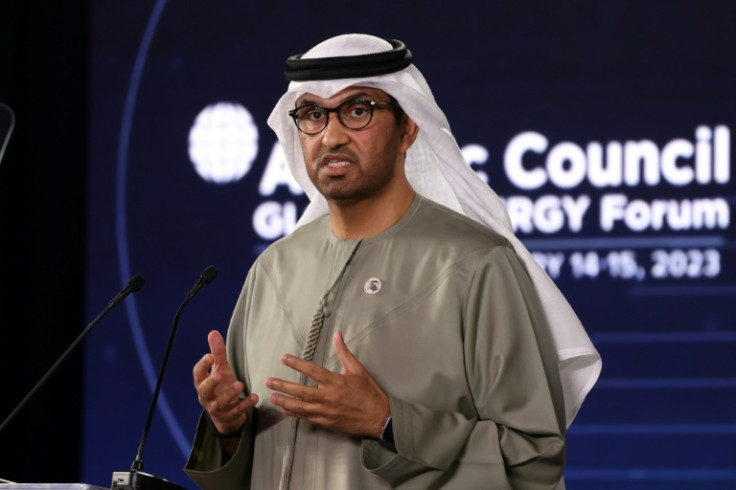UAE To Expand Its Renewable Energy Sector 4 Times In 7 Years
KEY POINTS
- The UAE will increase its portfolio from the existing 25,000 MW to 100,000 MW by 2030
- Al Jaber invited global leaders to strengthen commercial renewable energy projects
- He urged leaders to act now and together in fighting climate change
The United Arab Emirates is looking to boost its renewable energy sector by four times over the next seven years.
Dr. Sultan bin Ahmed Al Jaber, Minister of Industry and Advanced Technology and COP28 President-Designate, said the goal is to strengthen the country's renewable energy portfolio from the existing 25,000 MW to 100,000 MW by 2030.
Addressing his keynote speech at the Berlin Energy Transition Dialogue Conference 2023 (BETD) Wednesday, he further underscored the achievements of the UAE in the renewable energy sector, including its successful construction of three of the largest and most affordable single-site solar plants in the world.
"In the UAE, we have built the three largest and lowest-cost single-site solar plants in the world. And through Masdar, we will grow our renewable energy portfolio four times in the next 7 years—from 25,000 megawatts of operational renewable power to over 100 gigawatts," he said.
Dr. Al Jaber extended an invitation to German companies as well as firms from across the world to join the UAE in delivering commercial renewable energy projects in every corner of the world.
"The UAE and Germany have a shared vision for the future of renewable energy. Both countries have embedded wind and solar energy into our energy mix. In Germany, renewable energy has grown 40 percent of power generation in 30 years. I want to extend an open invitation to our German partners, and all our global partners to work with us to deliver commercial renewable energy projects in every region in the world," he said.
He also cited the Inter-governmental Panel on Climate Change (IPCC) report published last week, which reflected that the world was off track in its goal to keep temperatures from rising 1.5 degrees above pre-industrial levels. "We have a small window of opportunity to make a massive course correction," he said.
"There is still time, but we must act now and we must act together. We must reduce emissions by 43 percent by 2030. We have to make these cuts while meeting the energy needs of a population that will grow by half a billion by 2030," the minister added.
He then urged global leaders to explore every available energy source that will help curb the impact of climate change, including hydrogen, carbon and nuclear sources, while emphasizing the need for expanding renewable energy capacity six times by 2040.

© Copyright 2023 IBTimes AE. All rights reserved.




















